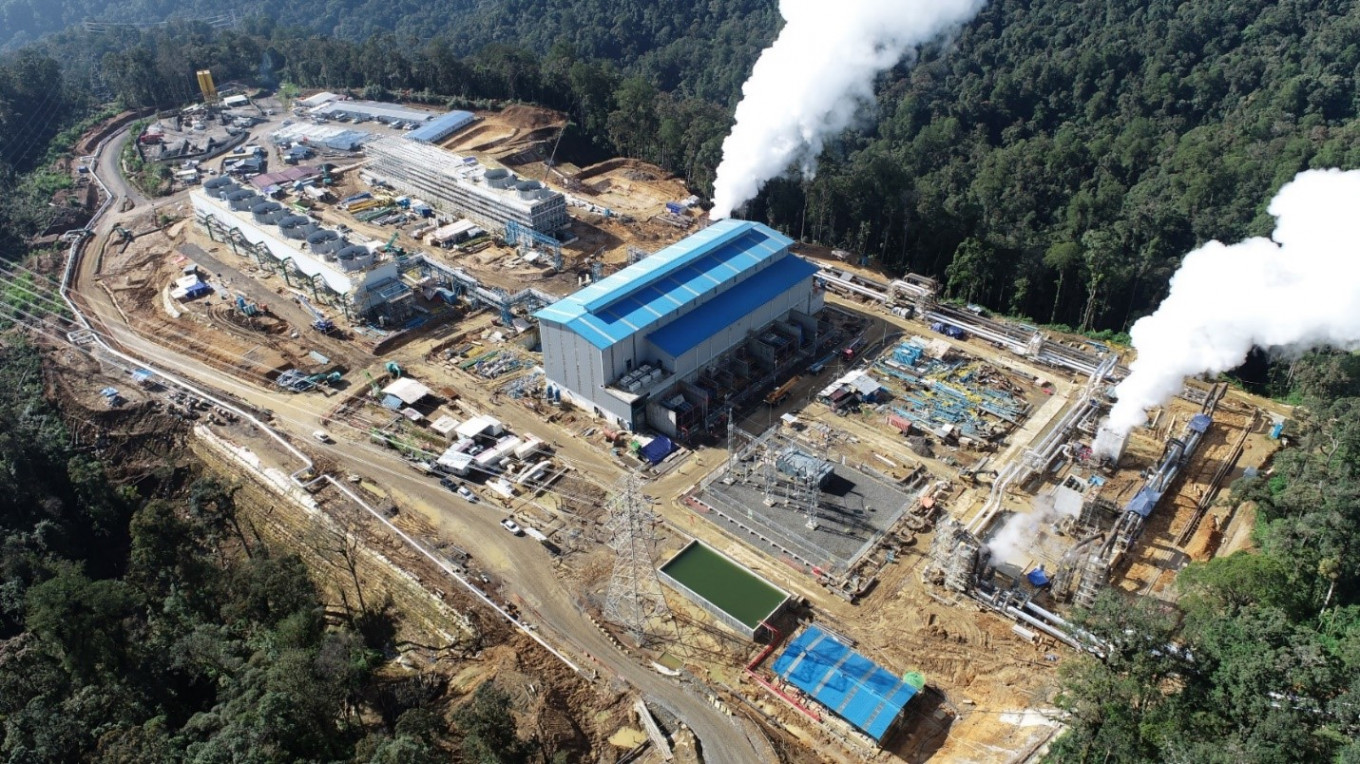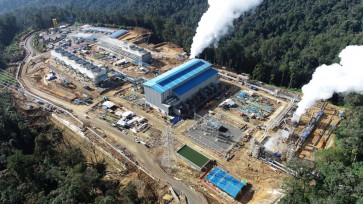Popular Reads
Top Results
Can't find what you're looking for?
View all search resultsPopular Reads
Top Results
Can't find what you're looking for?
View all search resultsFirms in Indonesia struggle to go green in energy use
While some multinational companies have been putting solar photovoltaic (PV) panels on their buildings in Indonesia, significant growth in green energy infrastructure won’t happen until the government creates an enabling environment, experts say.
Change text size
Gift Premium Articles
to Anyone
G
reen energy infrastructure in Indonesia will not grow significantly unless the government creates an enabling environment, experts say, and until that happens, firms will struggle to achieve a low carbon footprint in the country.
According to RE100, a movement initiated by United States-based NGO The Climate Group, a growing number of multinational companies worldwide are committed to consuming 100 percent renewable electricity.
In 2019, 5 percent of RE100 companies had operations in Indonesia, Institute for Essential Services Reform (IESR) data show.
Clorinda Wibowo, energy manager of World Resources Institute (WRI) Indonesia, urged the government to improve the renewable energy investment climate by affording private companies greater flexibility.
“The private sector’s contribution is [crucial] for the energy transition. Their investment can [reduce the need for] public funding in financing green projects,” she told The Jakarta Post on Monday.
Read also: RE100: Clean power initiative struggles to catch on in Indonesia
In Indonesia, Coca-Cola, Danone and Schneider Electric have pledged to use only renewable energy by 2030, but that is easier said than done, because companies are faced with limited options to procure renewable energy.



















